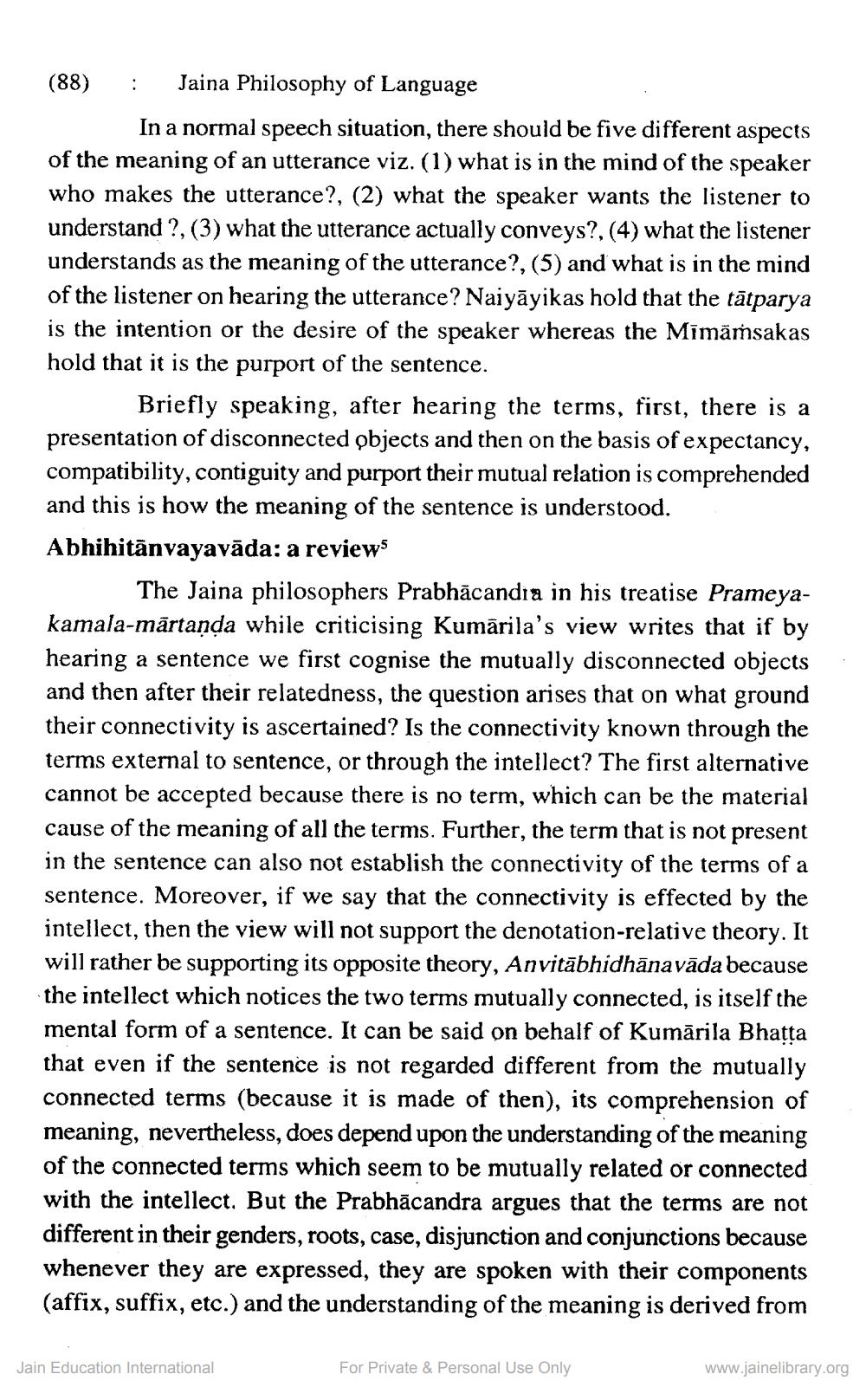________________
(88) : Jaina Philosophy of Language
In a normal speech situation, there should be five different aspects of the meaning of an utterance viz. (1) what is in the mind of the speaker who makes the utterance?, (2) what the speaker wants the listener to understand ?,(3) what the utterance actually conveys?,(4) what the listener understands as the meaning of the utterance?,(5) and what is in the mind of the listener on hearing the utterance? Naiyāyikas hold that the tātparya is the intention or the desire of the speaker whereas the Mimāṁsakas hold that it is the purport of the sentence.
Briefly speaking, after hearing the terms, first, there is a presentation of disconnected objects and then on the basis of expectancy, compatibility, contiguity and purport their mutual relation is comprehended and this is how the meaning of the sentence is understood. Abhihitānvayavāda: a reviews
The Jaina philosophers Prabhācandia in his treatise Prameyakamala-mārtanda while criticising Kumārila's view writes that if by hearing a sentence we first cognise the mutually disconnected objects and then after their relatedness, the question arises that on what ground their connectivity is ascertained? Is the connectivity known through the terms external to sentence, or through the intellect? The first alternative cannot be accepted because there is no term, which can be the material cause of the meaning of all the terms. Further, the term that is not present in the sentence can also not establish the connectivity of the terms of a sentence. Moreover, if we say that the connectivity is effected by the intellect, then the view will not support the denotation-relative theory. It will rather be supporting its opposite theory, Anvitābhidhānavāda because the intellect which notices the two terms mutually connected, is itself the mental form of a sentence. It can be said on behalf of Kumārila Bhatta that even if the sentence is not regarded different from the mutually connected terms (because it is made of then), its comprehension of meaning, nevertheless, does depend upon the understanding of the meaning of the connected terms which seem to be mutually related or connected with the intellect. But the Prabhācandra argues that the terms are not different in their genders, roots, case, disjunction and conjunctions because whenever they are expressed, they are spoken with their components (affix, suffix, etc.) and the understanding of the meaning is derived from
Jain Education International
For Private & Personal Use Only
www.jainelibrary.org




